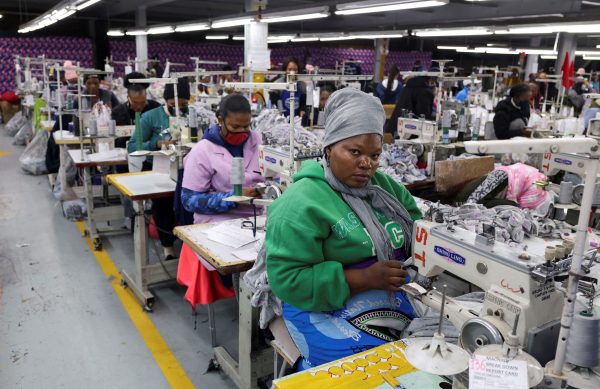
Greek inflation in May 2024 registered a slight 0.3% drop to 2.4% from April’s 2.4% rate. However, the consumer price Index (CPI) in May 2024 compared with May 2023, increased by 2.4%, acording to the country’s statistical authority, ELSTAT. In May 2023, the annual rate of change of the CPI was 2.8%.
The average inflation in Greece for the twelve – month period from June 2023 to May 2024, compared with the corresponding index for the period June 2022 to May 2023 increased by 2.8%. The annual rate of change of the average CPI between the twelve – month period June 2022 to May 2023 in comparison to the period June 2021 to May 2022 was 7.8%.
The 0.3% decrease of the Overall Greek inflation in May 2024, compared with the corresponding index in April 2024 is, mainly, due to the changes in the groups of goods and services as follows:
1. A decrease of:
• 0.5% in the group Food and non-alcoholic beverages, due to the decrease, mainly, in the prices of: pork, milk whole fresh, fresh
fruit, fresh vegetables. This decrease was partly offset by the increase, mainly, in the prices of: bread and cereals, poultry, fresh
fish, yoghurt.
• 0.3% in the group Alcoholic beverages and tobacco, due to the decrease, mainly, in the prices of alcoholic beverages (not
served).
• 0.6% in the group Housing, due to the decrease, mainly, in the prices of electricity. This decrease was partly offset by the
increase, mainly, in the prices of: rentals for dwellings, natural gas.
• 0.4% in the group Household equipment, due to the decrease, mainly, in the prices of non-durable household articles.
• 0.4% in the group Transport, due to the decrease, mainly, in the prices of fuels and lubricants. This decrease was partly offset
by the increase, mainly, in the prices of tickets for passenger transport by air.
• 0.8% in the group Miscellaneous goods and services, due to the decrease, mainly, in the prices of other appliances and articles
for personal care.
2. An increase of:
• 0.8% in the group Clothing and footwear, due to the increase in the prices of clothing and footwear.
• 0.2% in the group Hotel-Cafés-Restaurants, due to the increase, mainly, in the prices of restaurants-confectioneries-cafes-buffets.
Source: tovima.com
Latest News

PM Mitsotakis to Chair New Democracy’s Committee Meeting
Today’s meeting is seen as a crucial opportunity to halt internal disputes within ND and reaffirm unity within the party.

Trump Tariffs Jeopardize Growth: Piraeus Chamber of Commerce
The tariffs, aimed at reducing the U.S. trade deficit, are expected to have both direct and indirect effects on the European economy

EU Condemns Trump Tariffs, Prepares to Retaliate
As tensions escalate, the EU is expected to continue negotiations with Washington while preparing for potential economic retaliation.

The Likely Impact of Trump Tariffs on Europe and Greece
Trump tariffs are expected to negatively affect economic growth in the Eurozone while Greece's exports could take a hit.

Motor Oil Results for 2024: Adjusted EBITDA of 995 mln€; Proposed Dividend of 1.4€ Per Share
Adjusted EBITDA for 2024 was down 33% yoy. The adjusted profit after tax for 2024 stood at 504 million euros, a 43% decrease from the previous year

Cost of Living: Why Greece’s 3% Inflation Is Raising Alarm
Greece appears to be in a more difficult position when it comes to price hikes, just as we enter the era of Trump’s tariffs.

Fitch Ratings Upgrades the Four Greek Systemic Banks
NBG’s upgrade reflects the bank’s ongoing improvements in its credit profile, Fitch notes in its report, including strong profitability, a reduction in non-performing exposures (NPEs), and lower credit losses

Trump to Announce Sweeping New Tariffs Wednesday, Global Retaliation Expected
With Trump's announcement just hours away, markets, businesses, and foreign governments are bracing for the fallout of one of the most aggressive shifts in U.S. trade policy in decades.

Inflation in Greece at 3.1% in March, Eurostat Reports
Average inflation in the eurozone settled at 2.2%, compared to 2.3% in February

Greece’s Unemployment Rate Drops to 8.6% in February
Despite the overall decline, unemployment remains higher among women and young people.










































 Αριθμός Πιστοποίησης
Αριθμός Πιστοποίησης